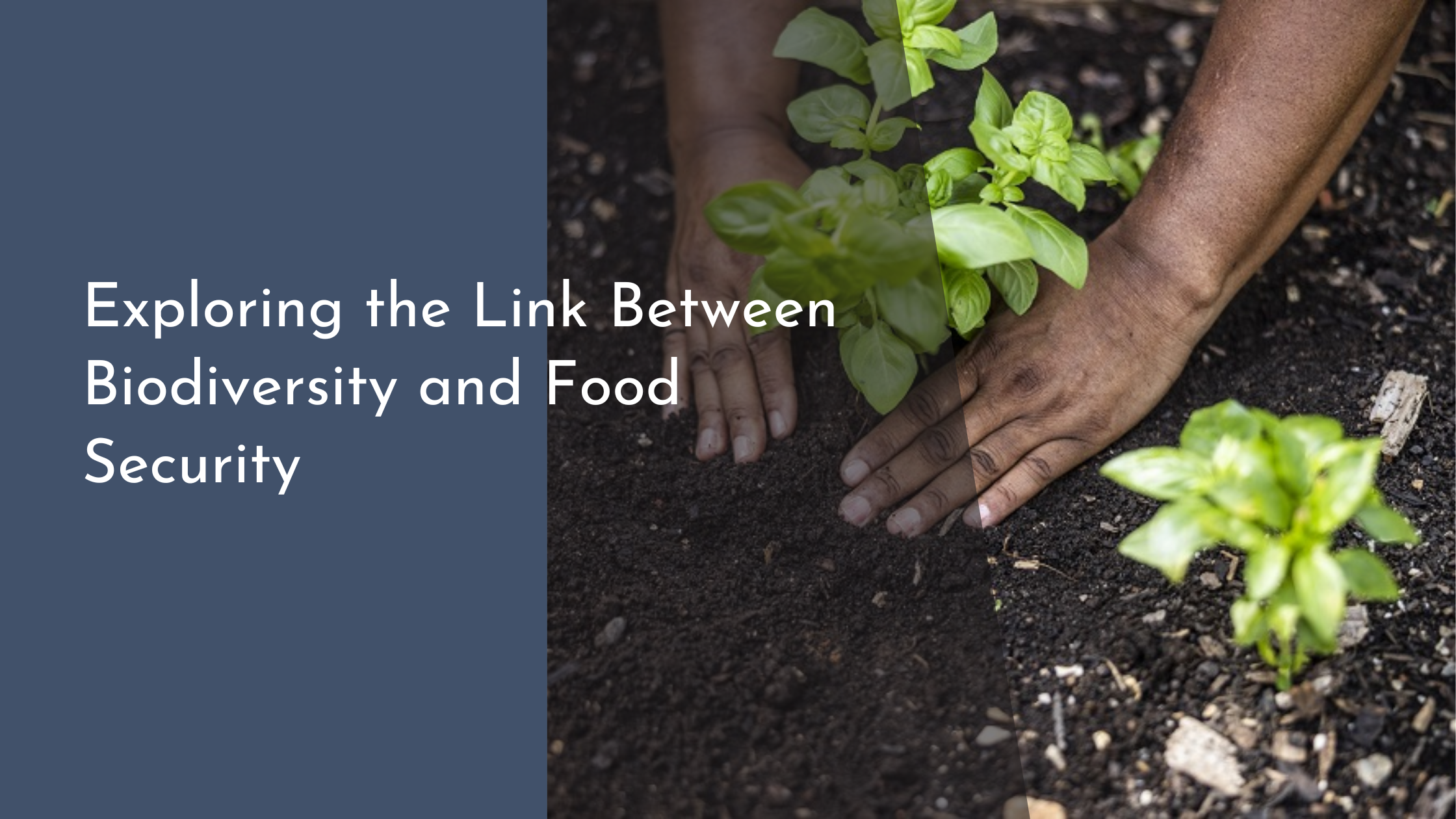Exploring the Link Between Biodiversity and Food Security
In today’s world, the interconnectedness of nature and human sustenance is more evident than ever. Biodiversity, the variety of life on Earth, plays a crucial role in maintaining ecosystems and, consequently, in ensuring food security. This article delves into the relationship between biodiversity and food security, highlighting the importance of diverse ecosystems in supporting resilient crops, providing nutritional variety, and fostering a hopeful future for global food systems.
Understanding Biodiversity’s Role in Ecosystems
Biodiversity is the foundation upon which ecosystems are built. It encompasses the multitude of organisms that interact within a particular environment, each contributing to the health and stability of that ecosystem. These interactions create a balanced web of life that supports essential processes like pollination, soil formation, and nutrient cycling. By maintaining a diverse range of species, ecosystems become more resilient to disturbances such as climate change and natural disasters, ultimately preserving their ability to support human life.
In addition to bolstering ecosystem stability, biodiversity plays a vital role in maintaining ecological services. For instance, a variety of plant species ensures that pollinators have a continual food supply, increasing the likelihood of successful crop fertilization. Similarly, diverse microbial communities in the soil contribute to nutrient availability and promote healthy plant growth. By safeguarding biodiversity, we are essentially protecting the invaluable services that sustain our agricultural systems and, by extension, our food supply.
The Impact of Biodiversity on Crop Resilience
Biodiversity directly influences the resilience of crops by enhancing their ability to withstand pests, diseases, and environmental stressors. Diverse ecosystems harbor a range of natural predators that help control pest populations, reducing the need for chemical interventions. Moreover, varied plant species can foster beneficial microclimates that protect crops from extreme weather conditions, such as droughts or floods. By integrating biodiversity into agricultural practices, farmers can cultivate more robust crop systems that are less vulnerable to external threats.
Moreover, biodiversity contributes to crop genetic diversity, which is paramount for developing resilient agricultural systems. Genetic diversity within crop species allows for the selection of traits that improve resistance to specific diseases or environmental challenges. This adaptability is crucial for addressing the impacts of climate change, as it enables farmers to cultivate crops that are better suited to evolving conditions. By preserving and utilizing the genetic diversity found in wild relatives of domesticated crops, we can enhance the resilience of our food systems and safeguard future food security.
Biodiversity’s Contribution to Nutritional Variety
Biodiversity not only plays a role in crop resilience but also significantly contributes to nutritional variety. A diverse range of plant and animal species provides an array of nutrients that are essential for human health. Consuming a variety of foods sourced from biodiverse ecosystems ensures a balanced intake of vitamins, minerals, and other nutrients that are necessary for maintaining optimal health and preventing malnutrition.
In addition to enhancing nutritional intake, biodiversity in food systems can lead to the discovery of new and beneficial food sources. Many traditional and indigenous communities have relied on diverse diets that include wild plants and animals, which are often rich in unique nutrients not found in conventional agricultural products. By tapping into this wealth of biodiversity, we can expand our dietary options and introduce novel, nutritious foods into global markets, promoting healthier and more sustainable eating habits.
A Cheerful Outlook: Biodiversity and Food Security
The harmonious relationship between biodiversity and food security paints an optimistic picture for the future. As awareness of this connection grows, governments, organizations, and individuals are increasingly taking steps to protect and restore biodiversity. Initiatives such as sustainable farming practices, conservation programs, and the establishment of protected areas help ensure that ecosystems remain vibrant and capable of supporting diverse life forms. By valuing and preserving biodiversity, we not only enhance food security but also promote a healthier planet for future generations.
Looking ahead, the integration of biodiversity into food systems offers exciting possibilities for innovation and growth. Advances in agricultural technology and research can further unlock the potential of biodiversity, leading to improved crop varieties, new food sources, and more efficient farming practices. By embracing the diversity of life on Earth, we can build resilient and sustainable food systems that nourish both people and the planet, ensuring a secure and prosperous future for all.
In conclusion, the link between biodiversity and food security is undeniable and incredibly promising. By understanding and preserving the intricate web of life that sustains our ecosystems, we can create more resilient, nutritious, and sustainable food systems. As we continue to explore and appreciate the role of biodiversity in our world, we pave the way for a brighter, more secure future where both nature and humanity thrive in harmony. Let us celebrate and protect the rich tapestry of life that holds the key to our collective well-being.


